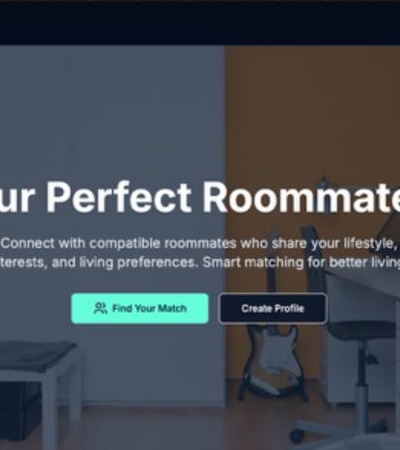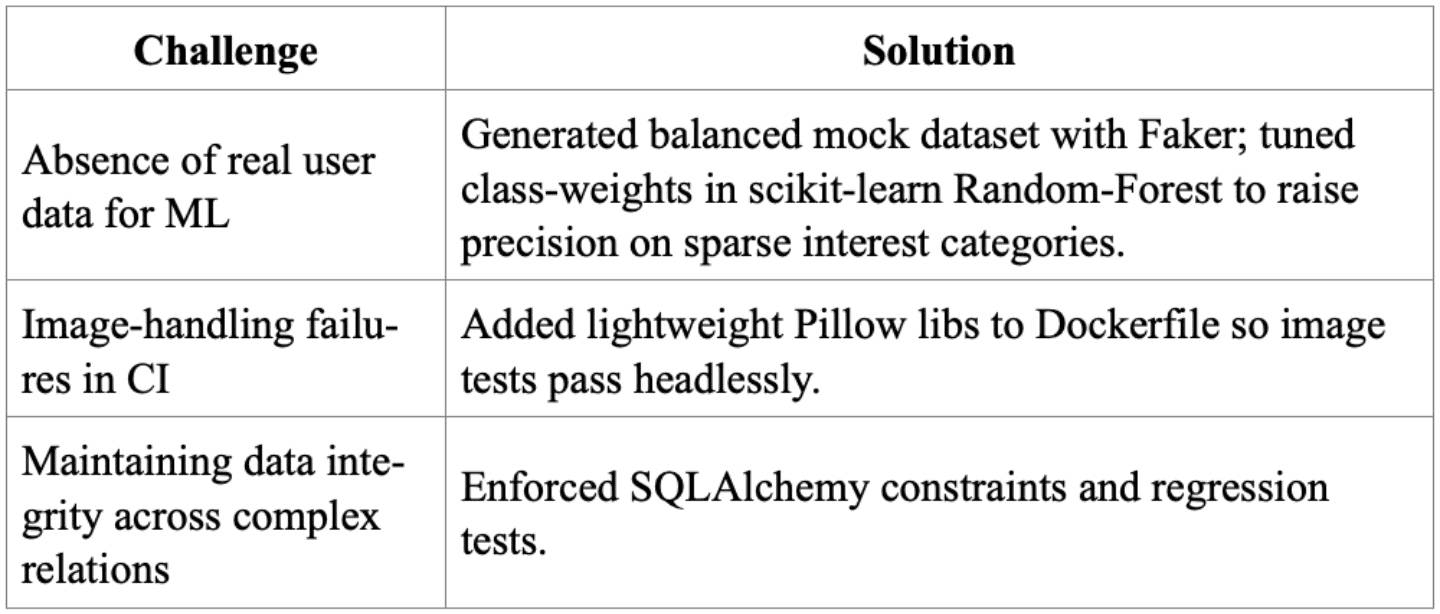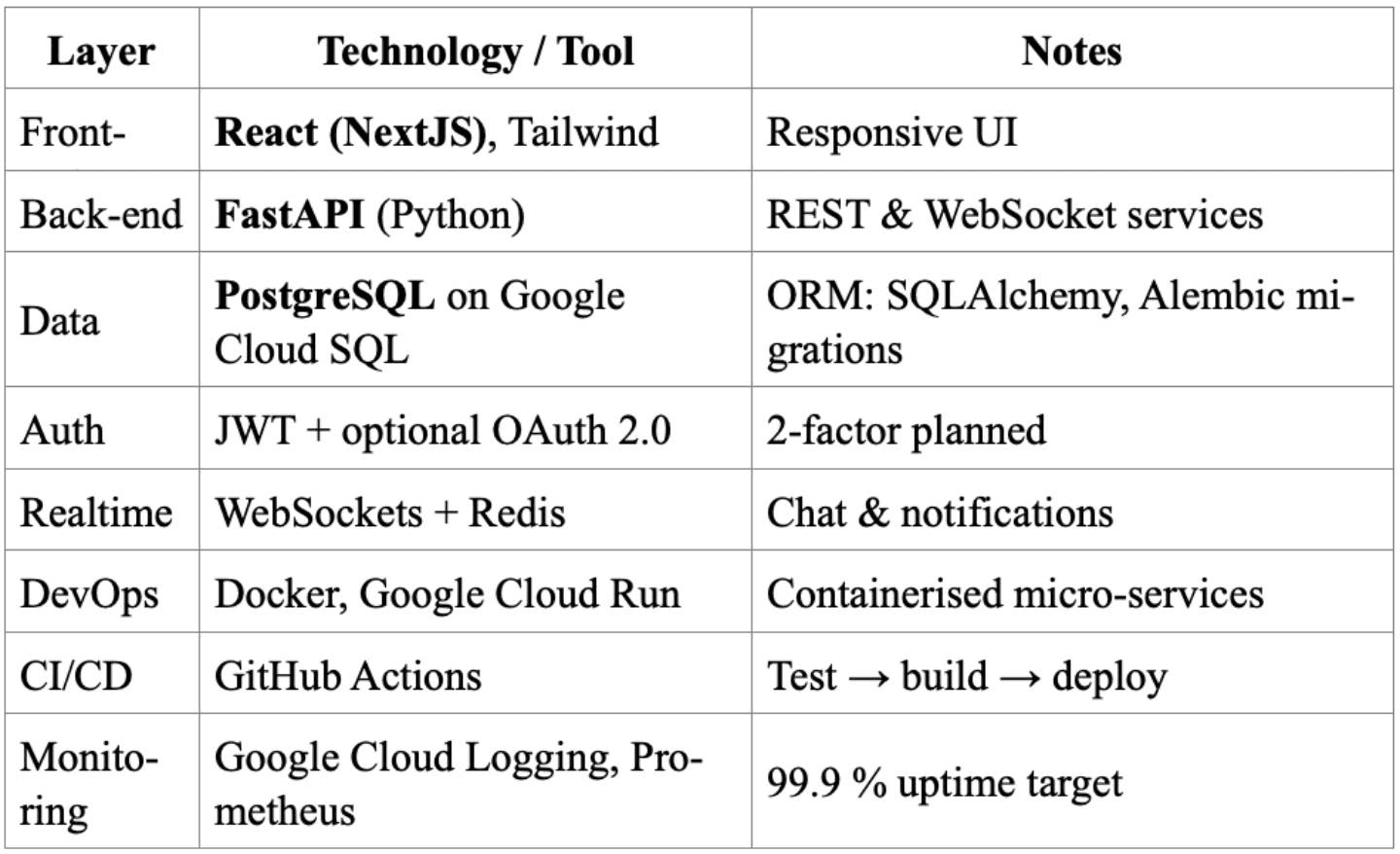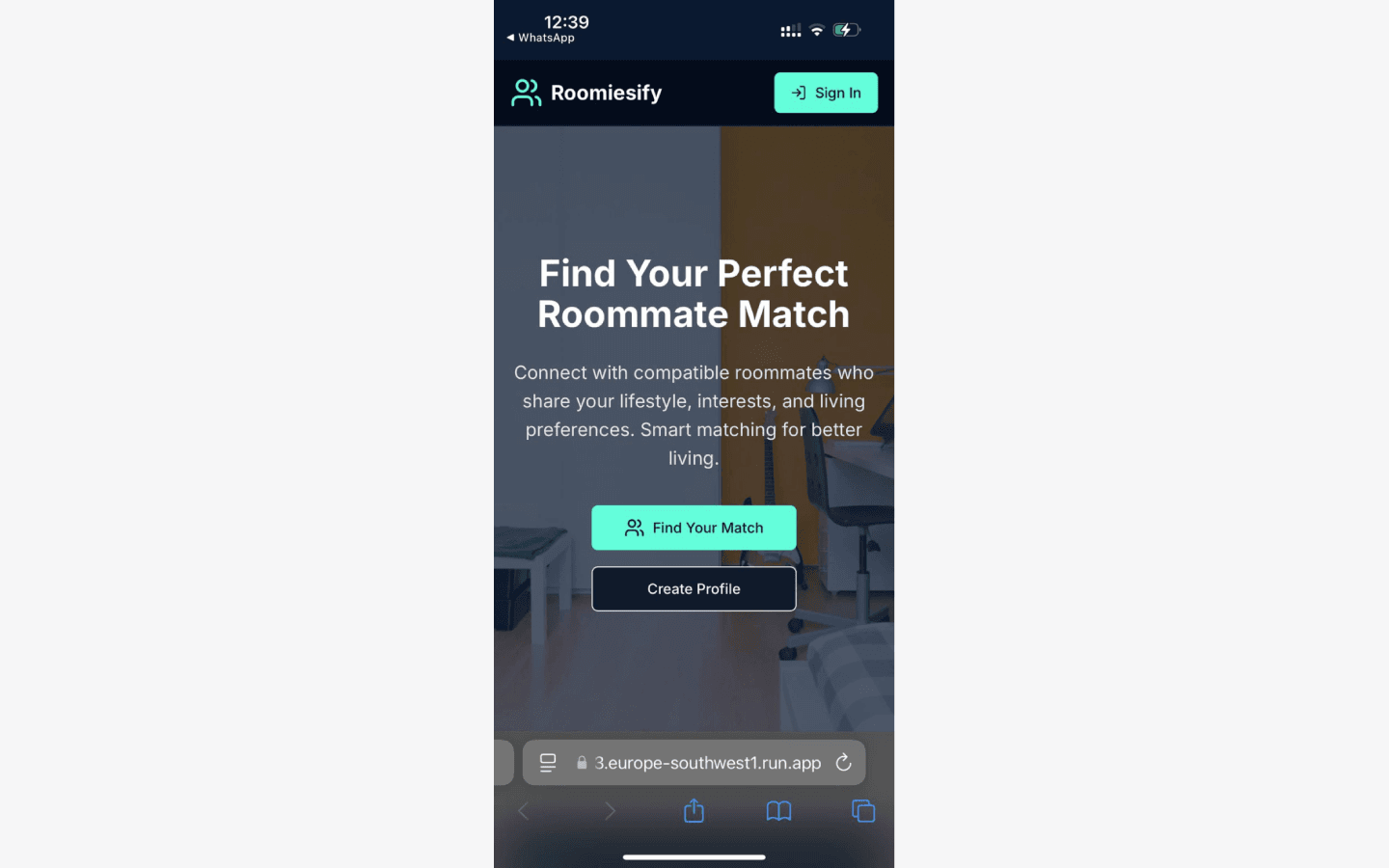
- Home
- Student Projects
- Roomiesify
Roomiesify
Roomiesify
Roomiesify is a web-based roommate-matching platform that lets students, young professionals and newcomers post or browse room/roommate listings, receive AI-driven match suggestions based on factors such as budget, interests and location preferences, and chat safely through an in-app messenger.
Project Overview
Project Overview
Can you provide a brief overview of the project you've been working on?
The application consists of a React front-end, a FastAPI micro-service back-end and a PostgreSQL database on Google Cloud SQL. Users create secure profiles, list rooms or search for compatible roommates, get matches via an interest-based algorithm, exchange real-time messages and receive notifications. Admin tools support moderation and analytics, while CI/CD pipelines on GitHub Actions keep the cloud deployment (Google Cloud Run + Load Balancer) up-to-date.
Purpose of the project
Purpose of the project
What inspired or motivated you to choose this particular project?
I set out to solve a pain-point I experienced first-hand: when I moved to Madrid to begin my Master’s in Computer Science at IE University, tracking down a safe, affordable room and a compatible roommate meant trawling endless social-media threads and sketchy listings. Roomiesify is designed to remove that stress by offering a single secure hub, backed by matching intelligence and verified profiles, so newcomers can quickly connect with trustworthy, like-minded roommates in any city or campus.
Technical Details
Technical Details
Could you explain the technical aspects of your project? What software, tools do you use?
Challenges and Solutions
Challenges and Solutions
Were there any significant challenges you encountered during the project, and how did you overcome them? Can you share a specific problem-solving moment that stands out in your project?

Collaboration and Teamwork
Collaboration and Teamwork
Did you collaborate with other students or team members on this project? How did teamwork contribute to the success or progress of your project?
Roomiesify is a solo project. Wearing every hat, product owner, designer, developer, and DevOps forced me to adopt strict time-boxing, detailed Kanban boards and review with the professor to keep the quality high.
Learning and Takeaways
Learning and Takeaways
What key lessons or skills have you gained from working on this project?
- Technical: model selection (why Random-Forest beat K-NN on sparse categorical data), container orchestration on GCP, and scalable WebSocket patterns.
- Process: the value of daily micro-sprints and automated pipelines when working alone.
- Soft skills: communicating a tech vision to prospective mentors and early adopters in the African tech ecosystem.
Future Development
Future Development
Do you have plans for further development or improvement of your project in the future?
- Release a React-Native mobile app to capture the smartphone-first audiences in both regions.
- Enhance matching with collaborative filtering and sentiment analysis of reviews.
- Migrate image storage to Google Filestore and add client-side compression.
- Implement stronger trust & safety: 2-factor authentication plus privacy-preserving ID verification.
Pictures
Pictures
additional information
additional information
Secure investment for a dual-market launch
- Madrid pilot (Q1 2026). Shared-housing costs are surging renting a single room now averages €552 / month, 42 % higher than in 2019 La Vanguardia. Spain’s capital also sits inside a continent-wide student-housing shortfall of 3 million beds, projected to rise to 3.2 million by 2029 JLL. With IE University drawing students from 160 countries (≈ 90 % international), demand for vetted, affordable co-living options is intense Cadena SER. Investors gain exposure to a deep, liquid rental market and clear monetisation paths (premium listings, analytics).
- Liberia rollout (Greater Monrovia, 2H 2026). More than 60 % of Liberians live in slums, and the National Housing Authority warns that 500 000 new homes are needed by 2030 to close the deficit Formax. Roomiesify’s vetted-roommate model can bridge the gap for students and young professionals priced out of formal rentals, an impact-driven opportunity that aligns with DFIs and social-impact funds.
Check other student projects
Check other student projects

